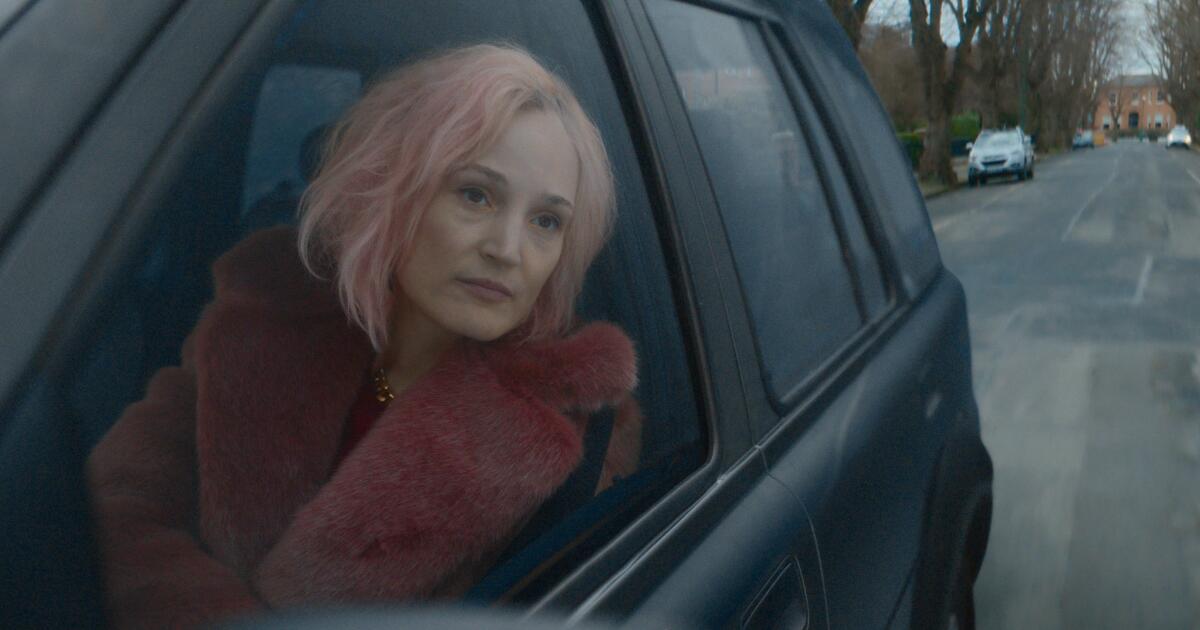In January 2004, Cyclone Heta made landfall on the island nation of Niue. uproot trees and flooding of houses Winds at 184 mph And 164 foot waves. As dawn approached, after a busy night, the winds died down, and Coral Pasisi began to worry about her neighbors. The storm was stronger than she expected: a tree fell on her roof and water reached her ankles. It was 4 a.m. when she hit the road to check out her neighborhood.
Usually, when Pasisi walked down the hill on the island's western shore, she would see the national museum with its familiar open-air amphitheater where she had watched so many traditional dance performances. But instead there was a clear view of the ocean. The museum has disappeared.
Safe · No tax deduction · Takes 45 seconds
Safe · No tax deduction · Takes 45 seconds
“There’s nothing left,” Pasisi said. “It was like a war zone.”
The only hospital on the island, the courthouse and the fuel depot also disappeared. Two people on the island died during the storm, then only more than 1700 inhabitantsdamage was estimated at nearly US$48 million, five times the country's annual gross domestic product. Two decades after the hurricane, the memory of missing museum still brings her to tears.
“This is an unimaginable, irreparable and irreparable non-economic loss. One that cannot be corrected or restored,” Pasisi reported to the International Courtor ICJ, in The Hague in December 2024. “One that has deprived our children of their future inalienable rights to traditional knowledge and cultural identity.”
Pasisi's testimony was among more than 100 that helped advance the International Court of Justice. issue a landmark advisory opinion that every nation on earth has a legal obligation to limit greenhouse gas emissions. Now Pasisi is among many advocates for indigenous peoples in the Pacific who are traveling to Brazil to attend COP30 – the annual intergovernmental meeting of UN member states – to try to ensure world leaders respect the decision.
“This is a different lens of clarity that we all see ahead of COP30,” said Pasisi, who is now director of climate change and sustainable development at Pacific Community (SPC)She and her fellow Pasifika advocates are no longer simply arguing that leaders have an ethical responsibility to save the planet, she said. “There’s nothing like a legal opinion to show you which side of the law you should be on.”
Pacific advocates at COP30 are demanding that world leaders follow the International Court of Justice's decision by phasing out fossil fuels and funding climate disaster recovery projects. Many are also calling for the inclusion of indigenous peoples and traditional ecological knowledge in climate change decision-making and opposing efforts to sacrifice the Pacific Ocean floor for lucrative transition mineral extraction operations. They argue that the next COP should be held in Australia, where they hope to have a better understanding of how climate change is affecting their lands and waters.
But while the ICJ's decision clarifies international law, it is a non-binding advisory opinion and countries can ignore its directives. However, failure to comply with this decision will undermine the court and the global system of international law, and will further worsen the climate crisis. Given that the ICJ case was originally brought by law students at the University of the South Pacific in Vanuatu, this makes this one of the most important CCs in the last 30 years for Pacific human rights activists.
“Our homes, culture and way of life are at the forefront of a crisis that we did not cause,” said Belindar Rikimani from the Solomon Islands and one of the founders Vanuatu Student Group this prompted the successful decision of the International Court of Justice on climate change. “Our goal is to remind negotiators that behind every political decision there are real people and real lives at stake.”
Sindra Sharma, Head of International Policy at Pacific Islands Climate Action Networkwants COP30 negotiations to result in participating countries being required to revise their national emissions targets to ensure global warming does not exceed 1.5 degrees Celsius. “We are now going to participate in this COP for the first time in the history of the COP, armed with what (the ICJ) has given us, which is an instrument of hope and ambition,” she said. “We're going to really use this tool to make sure that we can come out of this with the justice that we need for people and the rest of the ecosystem.”
Pasisi said better accountability is needed, as well as more money to prepare for and recover from climate impacts. When Niue sought help from global climate finance institutions to rebuild after the 2004 cyclone, its leaders were told that rebuilding their infrastructure did not meet the grant criteria. The community would have qualified if it had moved before the storm hit. They learned that responding to natural disasters does not qualify as climate change adaptation.
In her current job, Pasisi now provides technical assistance to Pacific communities who are trying to obtain grants from global funders such as Green Climate Fund And Adaptation Fund. But she said it often takes eight years for the money to come in, and local programs need faster funding.
Money and ambitious climate goals are important, but Maori youth delegation Aotearoa New Zealand is also calling for indigenous decision-making powers in climate governance. Unlike many other Pacific island states such as Niue, the Māori of Aotearoa have not achieved self-determination through the UN process and do not have a seat at the UN negotiating table.
“We will not accept climate 'solutions' that replicate systems of extraction and inequality. Climate action must focus on Indigenous rights, respect Te Tiriti o Waitangi and recognize the personhood of Te Taiao.” they said in a statement referring to the treaty between Maori chiefs and the first settlers of New Zealand and using the Maori term to refer to the natural world.
Earlier this year the mountain known as Taranaki Maunga was provided legal entity in Aotearoa, a legal status aimed at the continued conservation and traditional use of territory considered to be the ancestral land of the Māori people. Aotearoa has also granted legal personality to a forest and river that are part of growing movement recognize the rights of nature, which are also based on indigenous values.
By now, Pasisi has visited more COPs than she can remember and knows that even when political leaders make big promises, the next administration can easily renege on them. “It’s definitely heartbreaking for a lot of people who have been in this process for so long,” she said.
But this year, the biggest aspect that gives her hope is not what world leaders have said, or even the text of the International Court of Justice ruling, but the passion and dedication of Pacific youth like Rikimani. “I think when you see young people coming up and saying, 'Actually, this is my future, we're not going to drown, we're actually going to survive and thrive. There is no way for us to fail” – this kind of commitment from our young people and voices is truly powerful and inspiring,” Pasisi said.
“The fact that they led the convening of the International Court of Justice just shows how powerful young people can be if you give them the space and support them in the process.”








